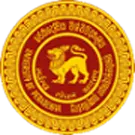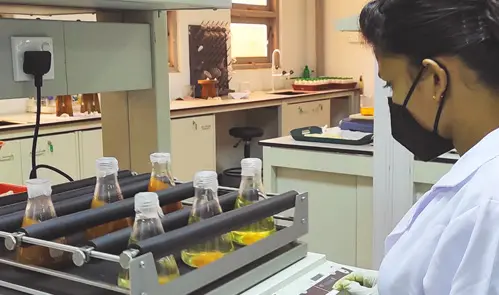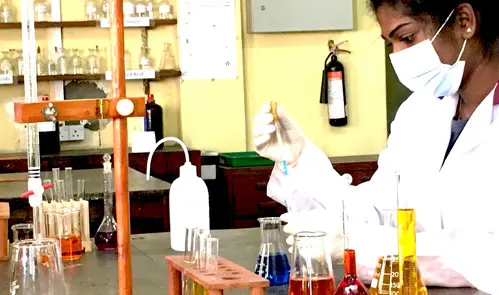Our study programmes undoubtedly offer essential up-to-date theoretical and practical knowledge, moulding a highly scientific professional well-suit for demanding industrial transformations.
The Department of Environmental and Industrial Sciences (EIS) of the Faculty of Science, University of Peradeniya was established in July, 2020. The department currently offers two honours degree programmes, namely the Environmental Science programme, which is offered at both 300 and 400 Levels and Applied Sciences programme, which is offered at the 400 Level. The Department of EIS together with other departments of the Faculty of Science of the University of Peradeniya offer Environmental Science and Applied Sciences study programmes in collaboration with outside experts. Currently, both programmes collectively cater to about 130 students.
In 2015, the Faculty of Science, University of Peradeniya introduced the B.Sc. (Hons.) in Environmental Science study programme (under the 2+2 structure), to cater to the growing demand for graduates who are equipped to face environmental problems both at the national and the global level. Global environmental problems such as climatic change, ozone layer depletion, acidic deposition and national environmental problems such as solid waste accumulation, and water, air and soil pollution, require the efforts of a new breed of science graduates trained in the broad multidisciplinary field of environmental science. It encompasses a wide range of subject disciplines including chemistry, biology, geology, physics, economics and the social sciences, which enables a graduate to be competent in environment related problem solving.
The B.Sc. (Hons.) in Applied Sciences study programme was introduced in 2005, extending the three year B.Sc. study programme (under the 3+1 structure) with an industry oriented fourth year focusing on outcome based education. Most of its courses are student centered with a focus on cultivating life-long learning, through utilizing blended learning techniques. Many of the courses in the programme are, by nature, multidisciplinary. Core-courses, which include the principles of industrial management, environmental challenges, research methodology, data analysis, and industrial applications laboratory, provide students with the basic knowledge required for decision-making, especially in the industrial world. The degree which is aligned with needs of the industrial sector seeks to produce graduates who are ready and willing to step into productive roles of industry in the country.
The details on selection criteria and the course units offered under these study programmes are available in the Faculty Student Handbook.


